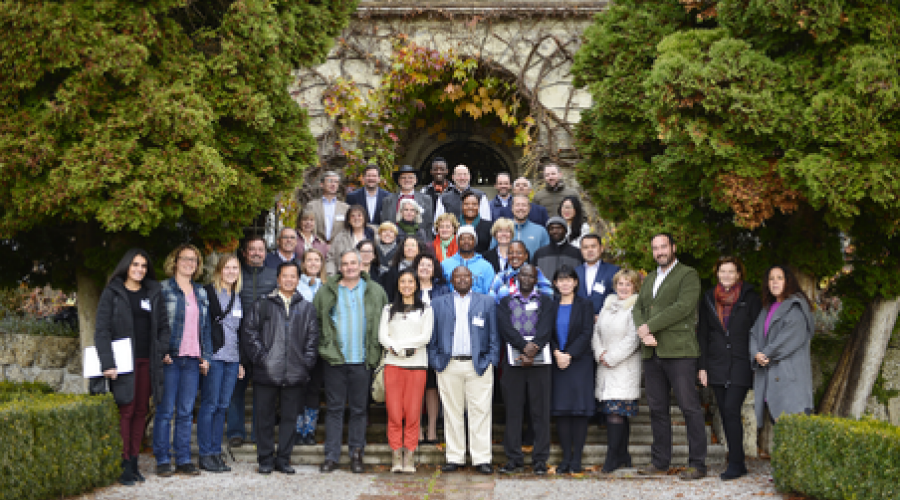2016 Salzburg Global Seminar’s Session 571 focuses on transboundary conservation
This year the Parks for the Planet Forum, a ten-year leadership and action platform launched by Salzburg Global Seminar and IUCN in 2015 held its 571th Session from November 9 to 13 in Salzburg, Austria, addressing conservation and biodiversity in transboundary regions. The session was attended by a diverse range of conservation practitioners and innovators together with policymakers and influencers from all over the globe. The theme of the five-day session was “The next frontier: Transboundary cooperation for biodiversity and peace”, focusing on various cross-cutting issues. Salzburg Global Seminar is a platform that seeks to challenge world leaders to prioritize solving issues of global concern. To do this, it designs, facilitates and hosts international strategic conferences.
Seth Maphalala, SADC TFCA Network Steering Committee Chairperson and Manager of the Swazi components of the Lubombo TFCA participated in the seminar and highlighted during an interview that “The session gave birth to new networks and connections as we came together on equal terms regardless of age or region to discuss issues of transboundary conservation. Here we had a chance to have a thorough look at the world TFCAs and how we could possibly align concepts with the SADC TFCA Programme as a model that is being tried and tested across the SADC region”. Over the next decade the forum aims to position nature at the very heart of human health and wellbeing, security and prosperity across the planet.
Session 571 built on discussions and initiatives that are currently being organized by key partners, consistent with the Promise of Sydney , made during the World Parks Congress in 2014. Partners and participants at the forefront of global innovation can address common challenges and identify success stories and practices that must be scaled up at local and regional levels. Participants worked on four main issue streams that underline the role, governance and cross sector potential of transboundary conservation initiatives, namely; access to water and basic needs for human security, contribution to sustainable livelihoods and broader regional benefits and development, conflict resolution and peacebuilding as well as migration, displacement and disaster relief
For his part Ernest Mokganedi, Director of Biodiversity and Conservation Areas at the Department of Environmental Affairs in South Africa, said the forum created a platform for people involved in the TFCAs to compare notes and share experiences. “There was common emphasis on the importance of involving the affected communities in the decision making processes. Also worth noting is the consensus reached by participants on the need to identify and encourage local leaders from the private, NGO, and government sectors, who can act as champions at global forums. That would be aimed at raising the required resources to make large-scale impacts,” he pointed out. Mokganedi highlighted that there was a general realization of lack of sufficient resources and appreciation of how TFCAs can be used to promote global peace and development. “Just as other TFCA’s across the globe can benefit from guidance by SADC TFCA Network, we can also greatly benefit from learning from other regions, especially from the Asian experience. To some degree there are similarities in terms of legal frameworks, governance structures, importance of involving political leadership and involvement of affected communities in the decision making processes. Creating platforms for regions to exchange knowledge and share experiences should be continued, coupled with field visits.The SADC region appears to be the only region so far, which has formal coordination mechanism for TFCAs at the regional level,” Mokganedi emphasized.


